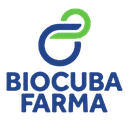Executive Secretary

VIII Simposio Internacional de Química y Ciencias Farmacéuticas
SIPN
IV Simposio Internacional “Química de productos naturales”
Resumen
La medicina tradicional es una fuente valiosa a la hora de buscar especies vegetales con compuestos novedosos para la industria farmacéutica. Sin embargo, el consumo no supervisado de estas plantas puede llevar a efectos irreparables en la salud humana, al no existir referencias de toxicidad secundaria o estudios previos para numerosas especies de uso popular. Las plantas del género Serjania (Sapindaceae) son empleadas en gran parte del continente americano para tratar disímiles dolencias y estudios recientes de varias especies dentro del género han confirmado sus propiedades beneficiosas; sin embargo, otras especies poseen elevada toxicidad. Serjania subdentata es una especie endémica de Cuba encontrada en Pinar del Río. El objetivo de este trabajo es evaluar los posibles efectos citotóxicos y genotóxicos de extractos hidroalcohólicos de tallo, hojas y frutos de Serjania subdentata. La citotoxicidad fue evaluada en Caulobacter crescentus y ADN plasmídico ex vivo mediante los ensayos de sobrevivencia bacteriana, SOS colorimétrico y clastogenicidad. Los extractos no fueron citotóxicos ni genotóxicos a ninguna de las concentraciones probadas (10 to 1000 µL). En el ensayo de sobrevivencia bacteriana se observó un aumento del crecimiento en las células tratadas con el extracto con respecto al control negativo. Este constituye el primer informe sobre la acción sobre ADN ex vivo y bacterias de los extractos de Serjania subdentata. Ninguno de los extractos obtenidos de la planta resultó citotóxico o genotóxico a las concentraciones evaluadas lo que abre el camino para investigar los posibles compuestos de interés y aplicaciones que pueda tener esta planta
Abstract
Traditional medicine is a valuable source in the search for plant species with novel compounds for the pharmaceutical industry. However, the unsupervised consumption of these plants can lead to irreparable effects on human health, as there are no references to secondary toxicity or previous studies for numerous species of popular use. The plants of the genus Serjania (Sapindaceae) are used in a large part of the American continent to treat dissimilar ailments and recent studies of several species within the genus have confirmed their beneficial properties; however, other species showed high toxicity. Serjania subdentata is an endemic species of Cuba found in Pinar del Río. The objective of this work is to evaluate the possible cytotoxic and genotoxic effects of hydroalcoholic extracts from the stem, leaves and fruits of Serjania subdentata. The cytotoxicity and genotixcity of the extracts was evaluated in Caulobacter crescentus and ex vivo plasmid DNA by the assays of bacterial survival, colorimetric SOS and clastogenicity. The extracts were neither cytotoxic nor genotoxic at any concentration tested (10 to 1000 µL). In the bacterial survival assay, an increase in growth was observed in the cells treated with the extract, compared to the negative control. This is the first report on the action of Serjania subdentata extracts on ex vivo DNA and bacteria of . None of the extracts obtained from the plant were cytotoxic or genotoxic at the concentrations evaluated, wich opens the way to investigate the possible compounds of interest and applications that this plant may have.
Sobre el ponente

Claudia Rodríguez Hernández

Discussion




